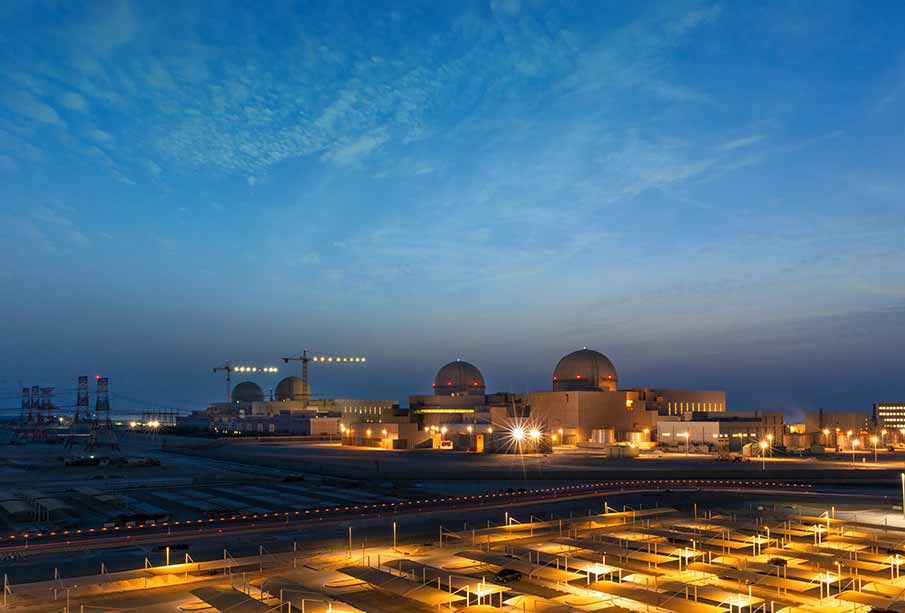The UAE has started operating the first nuclear power plant in the Arab World, the Emirates News Agency (WAM) reported on Saturday.
This step is the most historic milestone to date in the delivery of the UAE Peaceful Nuclear Energy Programme, as part of the process towards generating clean electricity for the Nation for at least the next 60 years.
Since receipt of the Operating License from the Federal Authority for Nuclear Regulations, FANR, in February 2020, and the completion of fuel assembly loading in March 2020, Nawah, the Joint Venture nuclear operations and maintenance subsidiary of ENEC and the Korea Electric Power Corporation, KEPCO, has been safely progressing through a comprehensive testing programme, prior to successfully completing the start-up of the first nuclear energy reactor of the Barakah plant.
The start-up of Unit 1 marks the first time that the reactor safely produces heat, which is used to create steam, turning a turbine to generate electricity. Nawah’s qualified and licensed team of nuclear operators focus on safely controlling the process and controlling the power output of the reactor. After several weeks and conducting numerous safety tests, Unit 1 will be ready to connect to the UAE’s electricity grid, delivering the first megawatts of clean electricity to the homes and businesses of the Nation.
Testing has been undertaken with the continued oversight of the UAE’s independent nuclear regulator, FANR, and follows the World Association of Nuclear Operator’s, WANO, completion of a Pre Start-up Review, PSUR, in January 2020, prior to receipt of the Operating License, which ensures Unit 1 is aligned with international best practice in the nuclear energy industry.
The UAE is the first country in the Arab World, and the 33rd nation globally, to develop a nuclear energy plant to generate safe, clean, and reliable baseload electricity.
The Barakah plant is significantly contributing to the UAE’s efforts to move towards the electrification of its energy sector, and the decarbonisation of electricity production.
When fully operational, the plant will produce 5.6 gigawatts of electricity while preventing the release of more than 21 million tons of carbon emissions every year, equivalent to the removal of 3.2 million cars from the Nation’s roads annually.





